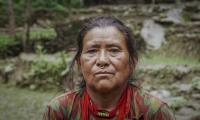Pushing for a human rights-based recovery from the COVID-19 pandemic

The work is funded by Danida.
The COVID-19 pandemic has had a devastating effect on societies and vulnerable people across the world. In many countries it has been used as a pretext for violating fundamental freedoms and human rights. To ensure that the recovery from the pandemic is sustainable and firmly grounded in human rights, the Institute co-initiated a Sustainable Recovery Pledge. The pledge contains ten commitments specifying how human rights and the 2030 Agenda will guide pandemic recovery.
A growing number of states are committed
So far, the pledge has been signed by 49 states and supported by many organisations including UN agencies. The pledge was launched at an event organised by the Institute in June 2021 with the participation of the UN High Commissioner for Human Rights, Michelle Bachelet, and a number of state representatives.
‘The COVID-19 recovery is our opportunity to build back better. To address the discrimination, injustice and inequality that the pandemic has highlighted and increased. It is a chance to promote human rights, democratic principles and good governance at all levels’, said Jeppe Kofod, the Minister of Foreign Affairs of Denmark, at the event.
The lockdown has made life difficult for many people. Farmers cannot sell their products due to the coronavirus. I wish the government would do something for us
Guidance shows the direction
The Institute has developed the Human Rights Guide to Sustainable Recovery, which gives concrete guidance on how to recover and transform our societies in a more sustainable direction.
It is a useful resource for states, national human rights institutions, businesses, civil society and researchers to develop and influence sustainable recovery planning and monitoring.
